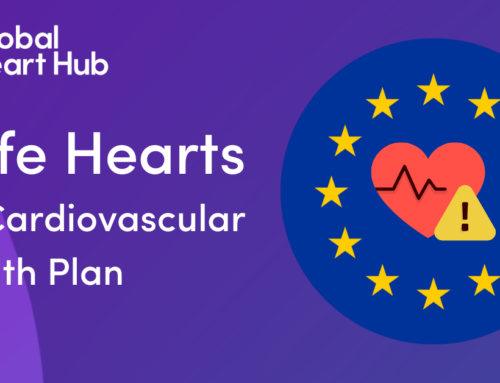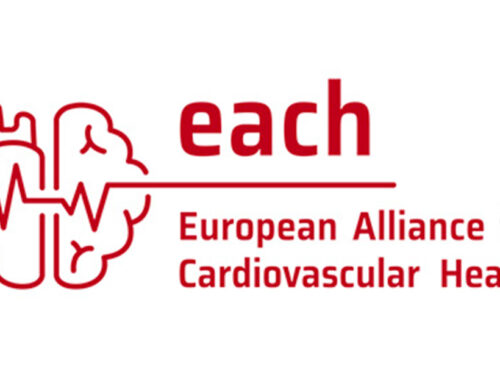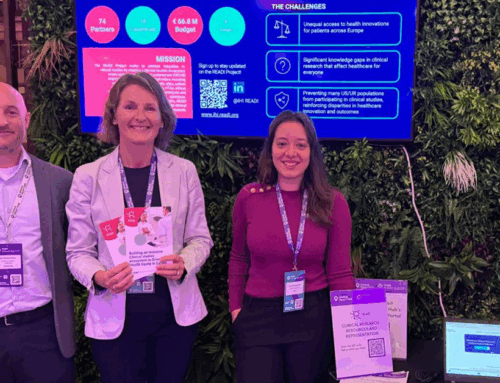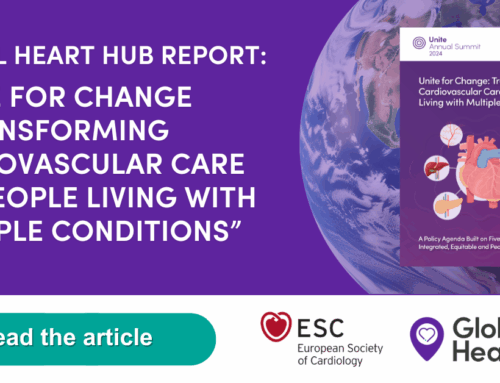Survey outlines the impact of COVID-19 on Heart Patients and Heart Patient Organisations
Several studies have confirmed that those most vulnerable to adverse or poorer outcomes from contracting the coronavirus are individuals living with cardiovascular disease, especially those living with heart failure, hypertension and diabetes.
Ironically at a time of greatest need when heart patients rely on the support of patient organisations, COVID-19 is also significantly impacting on these support structures. A survey conducted at the beginning of this month (April 2020) by the Global Heart Hub, the umbrella organisation for heart patient organisations across the world, has shown that, as expected, there has been an increased demand for information and support from patients, their carers and the general public, but at the same time, patient organisations themselves are battling the effects of the pandemic.
The Global Heart Hub survey on the impact of COVID-19 on patient organisations across 19 countries has reported that already almost half these groups have experienced a cut in their income and a third have had to reduce their staff numbers. The principal reason for reduction in income is cancellation or postponement of events which were either primarily fundraising events or events that were dependent on sponsorship. Interestingly, across some of the organisations who reported no change in income status are those who had already received their grant or sponsorship income for 2020, but their future income may be in jeopardy if the crisis continues over the rest of the year. In reporting on the increased demands on organisations, the ‘stay at home’ policy across the world has forced most organisations to provide information and support online or by telephone. Many organisations reported that one of the reasons for the increased outreach from patients, carers and members of the public has been the difficulty experienced in accessing GP’s and Pharmacists.
What is reassuring to note from the survey results is that patient organisations are keeping themselves informed through reputable sources and the vast majority of patient organisations (81%) are in direct contact with clinical experts for advice and guidance.
The global survey reports that the top three greatest impacts of the pandemic on patients are:
- Heightened fear and anxiety from their vulnerability due to their underlying health issues;
- Concerns and fears as a result of cancelled or postponed appointments and procedures;
- Increased anxiety due to isolation and loneliness as a result of the ‘stay at home’ or ‘cocooning’ policies.
As many of these individuals are older persons with already limited social interaction opportunities, the restrictions on movement coupled with the fear of contracting the virus are a cause of considerable anxiety with many commenting on their ‘fear of the future’. Equally of great concern to those with heart conditions is access and availability of COVID-19 testing. The vast majority of patient organisations (82%) across the world commented that individuals with heart conditions are not viewed as ‘urgent’ for COVID-19 testing.
Many people living with heart conditions report a range of fears and anxieties which are largely the same range of fears as everyone else – fear of infection, uncertainty about the future, economic uncertainties etc. Understandably however, the fear of being infected is the number one fear of all heart patients across the world. As a consequence, patients are now very fearful of going to hospital (in case they are exposed to the virus). This is reflected in the experience of hospitals across Europe and beyond where many people with heart attack symptoms are delaying or avoiding going to hospital, as evidenced by a dramatic reduction in heart attack admissions. This has led to an urgent call by the President of the European Society of Cardiology, Professor Barbra Casadei who emphasised that “Instructions to ‘stay at home’ and ‘don’t come to hospital’ do not apply to those with heart attack symptoms”. She added that people with symptoms of heart attack should immediately phone the emergency services because hospitals have designated areas for heart attack patients to prevent the spreading of the coronavirus.
Equally, the fear of attending hospital is influencing heart patients to decline scheduled procedures or surgery even when it’s clinically indicated as necessary or their doctor recommends it. Consequently, some patients are avoiding procedures such as heart valve replacement for fear of virus infection post procedure. This is in spite of medical advice that there is no evidence that the virus infects implanted devices or causes infective endocarditis in those with valve disease.
Unsurprisingly, a common concern among patients and their carers is the amount of ‘fake news’ and unreliable information that is circulating on social media. Patient organisations are therefore playing a very important role in supporting patients and their carers by providing reliable and accurate information in this time of greatest need.







